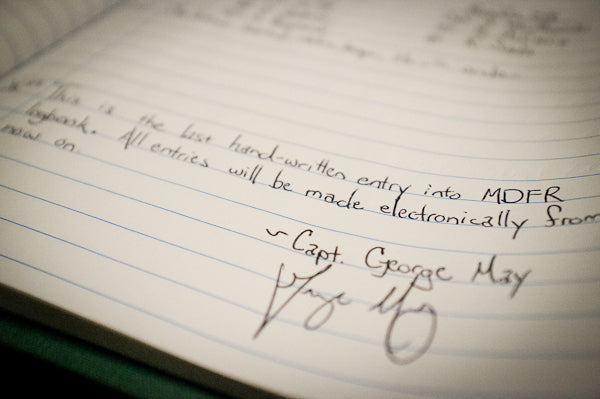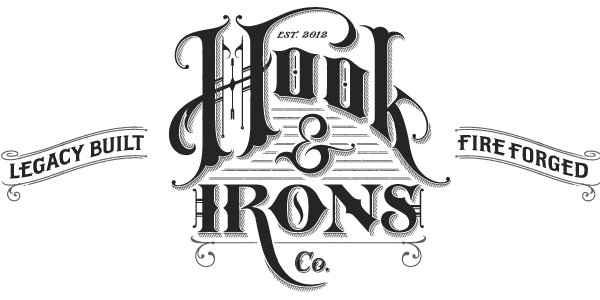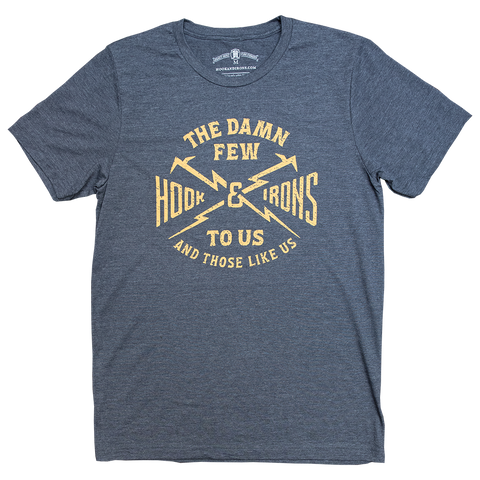Hook and Irons
Dear Chief, A Letter From the Guys July 05 2018, 12 Comments
Dear Chief,
This is a letter from the guys. It is full of suggestions and reminders of things you may have forgotten or things you don't think we notice. It is written with the knowledge that we are not supposed to know more than you. We are not supposed to be presumptuous enough to tell you what to do. And we are not supposed to remember how you were when you were one of us. But, before we dive into this, it is written with the hope that you realize that all great leaders lead with the knowledge that those who follow are watching everything. You may preach what you want, but we follow the highest example, and that is supposed to be you.
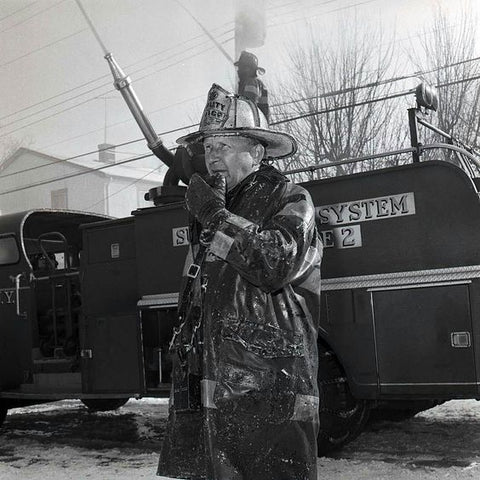
Your Past
You were not always a chief. We know who you were when you were one of us. And this can work in one of two ways--some people transition to chief very smoothly because they have spent their careers searching for the busiest houses, training when no one wanted to, but also training when everyone knew it was good for them. More importantly, these chiefs have already earned reputations as officers who take care of the guys on their truck, and in their station.
The other chief is the one who uses his badge to legitimize his power and pretends that the badge should be good enough regardless of the reputation they had earned prior to promotion.
Some people are thrust into positions of leadership. Most ask for it. For those that are thrust into these positions a certain amount of forgiveness and empathy is expected from those that follow. But we are not at war in the fire service and the majority of chiefs choose their career path. Very few receive field promotions.

Photo Credit: Michael Dick
The place you can make comparisons to the military is how you performed in battle during your career. Did you lead from the front? Were you aggressive? Or were you timid? Whatever you were, you will have a hard time demanding something different from your firefighters and still maintaining their respect.
Your Current State
Do you still put your gear on? Do you risk the embarrassment of being rusty in front of your firefighters to retain the knowledge of what it feels like to be the firefighter you are commanding? Performing one of the evolutions on a drill as a firefighter is just as symbolic as it is educational. It says without saying a word that the drill is informative, not punitive. It says that you are willing to work with and get dirty with them.
At the dinner table, do you demand to be treated as royalty, or do you set aside your privilege? I had a chief once who was difficult to work for. He was demanding and direct. He lacked tact and was quick to snap you back in line. He was a great strategist and tactician on the fireground and was absolutely unforgiving of those who were not prepared. He was, as my wife would say, 'a pill.' But once a month, without fail, he would cook for us, and when dinner was ready, would make us sit and serve us our meals as if he was our waiter. Then he wouldn't sit until we were all served and eating. And he wouldn't take a dime from us for the meal. That simple gesture still affects me whenever I think about it. The symbolism of it and the statement--the act of selflessness was his way of showing us how much he respected our hard work. Even though, in many respects, he was 'A Pill,' he turned us into a great battalion and I still miss working for him.
Conversely, after that chief retired, I was cursed for a short time with a chief who stayed in his office all day, never attended any company drills, would not eat with us, and would only communicate with us via e-mail directives. He was lazy and a coward. He acted as if "The Fire" would never come and was the definition of a 'copy' chief on the fireground. What's a copy chief, you ask? A copy chief is an IC who does not drive the action on the fireground but simply says 'copy' to every units self-directed action and suggestion. He was, in short, the next worse thing to freelancing on a fire scene. When, after two months, the battalion turned on him, the mutiny was quick, painful and ended with him leaving the battalion that everyone but him loved.

Photo Credit: Michael Dick
Your Future/Your Legacy
There will come a point in your career where you will think more about what you will leave behind rather than what you hope to do. On our department, it is a tradition to do a last alarm for every member's last shift before retirement. The recall is sounded at every station. The dispatcher then reads a canned thank you message and the air is cleared for members to wish you well in retirement. To me, there is no greater statement on ones career, then the air being filled with well wishers--coworkers, friends and peers, sending you off to retirement with kind words. Some thank yous have gone on so long that they interrupt emergency calls that are pending. And yet, there are a few that are followed with a terrible silence or an off colored joke. Afterwards, the fire alarm office gives you the recording as a gift and what an awful gift it must be to those self-serving people who have put themselves above others for 25 years.
As a chief, I ask you, how do you want to be remembered? Will you be remembered as the tyrant, the lazy S.O.B., or the miserable selfish chief who everyone loathed? Will they tell stories of how they survived your incompetence on a fire scene and your hatred of the fire service? Or will the firefighters who worked for you, pass on the highest compliment that can be bestowed: "He was great. He took care of us." And, "He was for the guys. Always."
The Damn Few May 09 2018, 3 Comments
The following is a guest blog by Capt. Mike Yetter, currently a USAR member, he is a training Capt with MDFR and former Captain of 'The Meat Grinder,' Aerial 29.
“The man on top of the mountain didn’t fall there.”
– Unknown
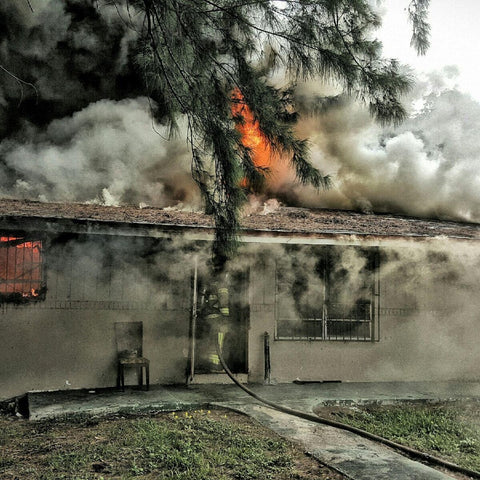
“Here’s to us and those like us. The Few. . .The Damn Few.”
The above lines are paraphrased, but in its entirety were made famous in the Book “Damn Few” by US Navy SEAL Rorke Denver and the movie in which he was also a part of, “Act of Valor." As with many inspirations that originate from the military, the concept of the few who make the difference resonates so true within the fire service.
Recently, it's become apparent to me that there are only a few who give a damn about the ethos, logos and pathos in cultivating true Firemanship. It seems there are too damn few people who earn their paycheck compared to those that collect them. It appears more people are willing to get this job and damn few of them care enough to be good at it. There are too many recliners that shows signs of wear and tear when damn few are wearing out their gear on the training grounds.

The “Damn Few” are just that--the minority. If you could group people into categories based on their work ethic, these would probably be the following categories as I observe them:
20% would consist of the “Aggressively Disengaged.” These are the people who arrive in body (not necessarily in spirit) just to collect a paycheck. They are barely average, yet complain when no one goes above and beyond to meet their needs. This doesn’t make them bad people, this just makes them useless. They are a liability to the department in terms of their lack of KSA’s and their potential influence to others.

60% are the “Average/ Status Quo”. As the group that represents the majority, these individuals are neither good or bad. They hang in the proverbial purgatory. Many who occupy this position have the capacity to rise above the status quo to either accomplish and be more, or sink to the level of the bottom feeders. The only thing that separates the direction they go is the influence that guides them. These individuals have a choice. They are inclined by nature to be receptive to the influence that suits them.
Those categorized above are usually referred to as “Nice” when someone inquires about them. Be careful! If someone asks about a firefighter and the response is a shoulder shrug that coincides with an answer of, “He/She is a nice person…” This is the tell, or politically correct way of implying that other than being a pleasant person, they typically don’t provide any benefit other than companionship.
20% are the “Damn Few." This designation is not self-imposed. These are the individuals who were either born to operate at a higher level or were so receptive to guidance it almost feels natural. These individuals are stubborn, somewhat idealistic, and have a strong disdain for anything less than the pursuit of perfection. Typically viewed as being “righteous”, they are seen as overachievers by their peers. Subordinates and supervisors (unless they are like minded) honestly don’t much care for them. However, when the impossible is presented because the many can’t accomplish it, it’s "The Few" that get it done.

These thoughts transcribed are not done so from a pedestal. They are not intended to create inflated egos. These are merely observations from the trenches in admiration to the specific rare breed of individual who are rarely recognized for their dedication.
Tonight, I raise my pint to you. . .The Damn Few.
Do you have a friend or coworker that you consider to be one of The Damn Few? Write their name in the comment section below.
-->Tools Of The Trade - Birth of 'The Hook' November 25 2014, 2 Comments
Earlier this year while visiting a neighboring firehouse, I saw that they had displayed a very cool shadow box with all of the different knots used in our fire department. I really liked the idea and all of the other 'knot boards' I've seen. I thought that it would be nice to see a board with many of the different types of hooks used in the fire service around the country laid out in a 'knot board' style so the viewer would be able to see all the different variations next to each other. As far as I knew, I had never seen anything like this before.
The first problem was finding the right designer who would be willing to research and sketch the different hook variations and lay them out in an interesting manner. I chose Adam Weaver for this project because not only is he a very talented hand-letterer, he is also extremely talented at creating authentic and original illustrations. The only problem was that Adam is not a firefighter. He did not know how important this tool is to us or it's many uses. How could he feel as passionately as I do about our tools and our history?
Fortunately, I've learned that Adam is a life-long student of many subjects and after the Keys To The City project, I know that he relishes learning the finer details of a subject rather than the broad strokes.

First, we set out choosing which hooks to use. I tried to pick not only the most popular hooks, but ones that are unique to certain parts of the country. After we settled on the subjects, Adam got to sketching. We tried to never stray too far from the 'knot board' feel. I wanted the design to be educational as well as visually interesting.

In the end, I feel Adam created a design that is truly original and unique--a design that I hope most firefighters would be proud to own.
I want to thank Adam for being so patient and taking the time over these past months to learn so much about our world. We have become fast friends and I hope Hook and Irons can tempt him into creating more designs for us in the future.
As for me. . . Well I hope you guys dig all the care, dedication and time that went into this one. And, as I always say, 'Wear it with pride.' And this time, since we're offering a limited edition print, you can 'display it with pride' as well.
101 Rules For The New Fire Officer April 18 2014, 19 Comments
I've gotten such a great response for the 101 Rules for the New Firefighter, that I've written a list for the newly promoted officer. I've compiled the list from personal experience and through reading and conversations with respected peers. Feel free to add to the list in the comments section.
1. Be calm. You are now the person who is in charge of keeping your crew safe. Your nervousness and excitement will never cause a positive response in those that are following.
2. Never ask a firefighter to do something you are not willing to do yourself.
3. A promotion is not a reason to stop cooking. You have not attained royal status yet.
4. Have your driver slow the truck down 2-3 blocks before arriving at a fire. This allows you to look for hydrants, visualize the scene, and slow your mind down enough to process what you're about to see and do.
5. A leader is best when people barely know he exists, when his work is done, his aim fulfilled, they will say: we did it ourselves. —Lao Tzu
6. Arrive to work at least a half an hour early. If your firefighters arrive before you, then show up earlier.
7. Make your drills meaningful with achievable goals.
8. Participate in your drills. You are not a general. You are a fire officer.
9. Admit your mistakes to your crew. They know you're not perfect. Don't pretend to be.

10. Lead me, follow me, or get out of my way. — General George Patton
11. You will see evil. You will see senseless tragedy. It is your responsibility to help your crew cope and understand it. It will also be your responsibility to recognize when they are not coping well.
12. When mistakes are made, take the blame. You are, after all, their leader. Their shortcomings are yours.
13. When good things happen, give credit.
14. Always have money in your wallet. No one wants to wait for the guy making the most money to go to the ATM.
15. Only pick the fights you know you can win. Be decisive.
16. Don't be afraid to bend the rules to serve a greater good.
17. Outstanding leaders go out of their way to boost the self-esteem of their personnel. If people believe in themselves, it’s amazing what they can accomplish. —Sam Walton
18. Empower your driver. He is your strong arm, your life line, your enforcer, and your confidant.
19. It's easy to say yes. A good leader knows how and when to say no.

20. Don't take the tools from your guys. Give your firefighters the chance to be successful. Guide them and make sure they are acting safely. They will be insulted if you take the tool and their chance to complete the task away from them.
21. Leaders think and talk about the solutions. Followers think and talk about the problems. —Brian Tracy
22. You are going to be criticized. Do what you know in your heart is the right thing and you will be fine.
23. Always work for the better good of the whole, not what is best for you.
24. Great leaders are almost always great simplifiers. They are people who can cut through argument, debate, and doubt to offer a solution everybody can understand. —General Colin Powell
25. Don't take shortcuts.
26. Don't be offended if you are part of a practical joke. Be worried if the guys don't joke with you at all.
27. Be approachable.
28. Remember birthdays, the names of spouses and the children of your co-workers--take an interest in their personal lives.
29. When knocking on a door for routine calls (EMS or otherwise) step to the side of the door. Many firefighters have been shot through the door by startled or scared occupants.
30. Learn to gauge the emergency effectiveness of your crew. Not all crews can perform at the same level.
31. Don't be afraid to ask a firefighter what they are bringing to the table.
32. It is better to lead from behind and to put others in front, especially when you celebrate victory when nice things occur. You take the front line when there is danger. Then people will appreciate your leadership. —Nelson Mandela
33. Seek out the busiest trucks.

34. Leaders aren’t born; they are made. And they are made just like anything else, through hard work. And that’s the price we’ll have to pay to achieve that goal, or any goal. —Vince Lombardi
35. Empower your firefighters.
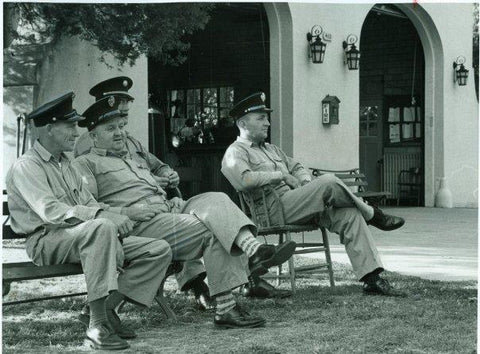
36. Observe your crew, their moods and their actions. It's not your job to make their bad day worse, but to show them a way out of it.
37. It's okay to joke and play jokes. It's not okay when those jokes are exclusionary or make the member feel like an outcast.
38. Have your own coffee mug, make it a big one and don't let anyone else touch it.
39. Don't get mad when they freeze that same coffee mug in a block of ice.
40. Just because you're behind the nozzle man on the fire, does not mean you are feeling what he's feeling. Trust his words and his actions. Sometimes he needs your confidence to make that final push and sometimes he needs you to recognize a change in tactics is needed.
41. Give your plan a chance to work.
42. Time becomes compressed on a fire scene. It's your job to mark time accurately.
43. The driver does not need you to hit the air horn and the Federal. He only needs you as a second set of eyes and as an occasional navigator.
44. Do not tell the driver how to get to an address. Do counsel your driver if he gets lost and does not ask for help prior.
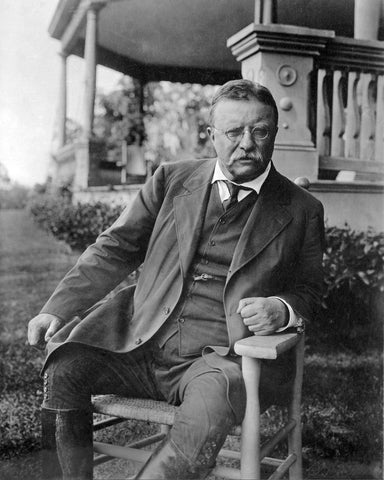
45. The best executive is the one who has sense enough to pick good men to do what he wants done, and self-restraint to keep from meddling with them while they do it. --Theodore Roosevelt
46. Never underestimate the power of common sense.
47. Sometimes the smartest thing to do is man up, and muscle through it.
48. We don't work with calipers, rulers and levels. We work with hooks, pry bars and axes. Fast, efficient and effective is more important than exact and perfect.
49. Stay hydrated.
50. One of the most important jobs you will do on scene is control the tempo of the work that is being done. No one mentions it, but everyone feels it.
51. Wear your seat belt and make sure the guys are wearing theirs.
52. If you have pride in your truck and your station, you will attract like-minded people.
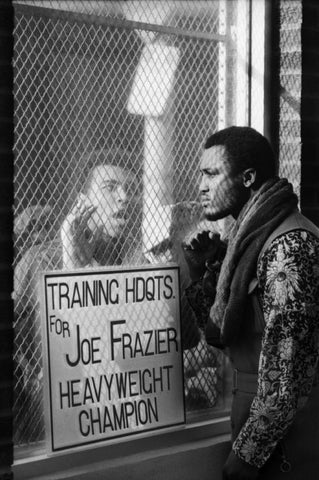
53. It's fine to talk smack as long as it's with your neighboring station. They need to know who the best crew in the battalion is.
54. Our chief want is someone who will inspire us to be what we know we could be. --Ralph Waldo Emerson
55. Take a structural collapse class and read Brannigan's Building Construction for the Fire Service.
56. In this order; you take care of your crew, your station, then your department.
57. Every EMS call is a chance to study building construction and layout. It is also a chance to recognize hazards from the inside out.
58. Your job is to remove doubt and build confidence.
59. Attend at least one fire conference a year. It will help you stay current on the latest tactics and techniques.
60. For as hard as it may be, you can not let the failures of management, union, or contract outwardly affect your demeanor. Firefighters take a cue from their officers. If you are negative. Your firefighters will be too.
61. If time permits, take a power nap. You'll be thankful you did at 3am when the crew is expecting your best.
62. If your budget permits, buy leather boots and a personal flashlight.
63. If you are on shift for the holidays, it is your job to make that day special for your second family. Coordinate the holiday meal, gift exchange, family time and/or whatever the station needs to make that day the best it can be.
64. You are not expected to know everything, you are expected to be able to find the answer or solution for almost everything.
65. Do not undermine the chief, even if you disagree with his decision or action. Tell the guys that you will talk to him and try to find out why he acted the way he did.
66. Small disagreements should be handled quickly and decisively even if it makes you the bad guy for the moment. Small unchecked problems become larger ones without intervention.

67. Before you commit your crew to a dangerous situation, be sure you've done your best to set yourself up for a successful conclusion.
68. Never write a correction, counsel, or shortcoming in an e-mail, particularly if you can deliver the message personally. The most misinterpreted communications are electronic in nature. Body language, tone of voice, and the necessity of looking the person in the eye are lost.
69. Don't be afraid to write an e-mail to your crew commending them on a job well done and cc'ing your supervisor with the message. This is an e-mail that is always well-received.
70. Do whatever you have to do to stay on the good side of the mechanic. Bring him water and coffee, offer him lunch or anything else that shows him that you appreciate the effort he's putting into your rig. They will work miracles for you if they think you're worth the effort.
71. You should not do personal business on truck time. If you do, don't say no when the firefighters ask you to take them somewhere for personal business.
72. Don't be afraid to give the fire a dash from the outside if there is something delaying your stretch into the interior. It may allow you the extra time you need to get the job done.
73. In a word, the best quality a leader can have is integrity.
74. A good plan executed in the moment of truth, is better than a perfect plan executed too late.
75. A good leader is a person who takes a little more than his share of the blame and a little less than his share of the credit. —John Maxwell

76. Always leave room for the aerial pieces.
77. Always talk to the police that spotted their vehicle in front of the fire scene. It's not their fault God didn't give them common sense.
78. Now you're in charge. The time for complaining is over. Fix the problem or do your best to explain why it's FUBAR.
79. Complaints go up, not down. Additionally, not every complaint from your firefighters is worth your time or effort. Sometimes they just want to vent or be heard. In those cases, just listen. Sometimes the complaints are personal in nature. Don't be afraid to tell them so. If you try to fix everything, you won't fix anything.
80. In the morning, look at the roster of the neighboring units, judge who is effective and who is not. Knowledge of that on a fire scene may help keep you safe or affect a decision you are trying to make.
81. Buy yourself a custom shield. You studied your ass off. You deserve it.
82. Sometimes great command is quiet command. There is no need to use precious air time on the radio just to hear yourself talk.
83. Make all radio communications clear and concise.
84. Watch fire videos. All kinds. There are lessons everywhere.
85. A new rookie in the station is a great excuse to go back to basics with everyone. Most firefighting skills are perishable and training the new guy or gal is a great chance for everyone to knock the rust off.
86. The rookie should never be drilling alone. You and the crew should be geared up doing whatever it is you are asking them to do.
87. The best leaders create a 'shared vision' that followers can rally around and share in the work to complete the goal.
88. It should be the officer's habit to place themselves at the most volatile point in whatever task they are undertaking; just behind the nozzle, on the roof next to the guy venting, or in the house doing the search.
89. If you are not automatically dispatched with the ambulance to shootings, stabbings, or gang fights, put yourself additional. They may need your help and by the time you get there it may be too late.
90. Strong book knowledge does not translate into strong leadership.

91. Read, Firefighting Operations in High-Rise and Standpipe Equipped Buildings by Dave McGrail. It is, in my opinion, one of the best textbooks for the fire service.
92. When developing your drill, never make more than one large thing that your firefighters have to imagine. For instance, if they have to imagine that the house is on fire and you are going to practice advancing hose, then you will lose them if you make them imagine a lost firefighter. You must actually have a lost firefighter in a structure to make the drill practical.
93. Repetition of one or two skills during a drill is much more effective than practicing multiple skills one time only.
94. Become proficient at communicating on your radio and with your crews while on air.
95. Make sure your firefighters know that on a fire scene you want to hear their observations. You also want those observations to be stated quickly and succinctly.
96. Whenever extending above grade or below grade, you should always have a back-up line in place.
97. Carry webbing.
98. The TIC is a tool, don't forget to listen to the fire, feel for changes in heat and to look past the TIC.
99. Be humble. It will allow your peers to cut you some slack when you make a mistake.
100. One of the most dangerous things you will do in the fire service is work a multiple vehicle collision on the highway. Spot your apparatus appropriately and always maintain scene awareness.
101. Don't spend too much time on the computer, there is usually a much more productive way to spend your day.
Stay safe,
George

www.hookandirons.com
Subscribe to our mailing list
Fireman Jim Flynn September 08 2013, 8 Comments
On February 13, 1917 Fireman Jim Flynn entered the ring with a young up-and-comer Jack Dempsey. Jim Flynn who had passed the height of his career charged to the center of the ring and quickly sent the Manassa Mauler to ground with a devastating right. Twenty seconds later, Dempsey was still trying to find his feet. Here is an account of the knockout.
'With Dempsey still bent over and walking toward Flynn, both forearms and gloves covering his face, Flynn rushed again. The Pueblo battler gave Dempsey's head a quick shove toward his right and sent a short right hand hook through Dempsey's guard and straight to the point of the chin. (Salt Lake Telegram)
Dempsey was down 10 seconds in to the bout.'
That quick, embarrassing loss was the only time in Jack Dempsey's storied career (66-6-11) that the future champion was ever knocked out and it was the highlight of Jim Flynn's career, a fighter who 'fought them all' but never earned the heavyweight title. For a time, Fireman Jim Flynn was the best hope of defeating the feared Jack Johnson but was never able to best the 'Galveston Giant' in three tries. Jim Flynn was famous however for knocking out aspiring contenders with such neatness that he became known as the 'Destroyer of Hopes.' Jim Flynn ended his career with 47 wins, 41 losses, and 17 draws.
Early Life
Jim Flynn was born in Hoboken, NJ with name Andrew Chiariglione. He was actually of Irish-Italian descent, but took the name Jim Flynn for professional purposes as the Irish were some of the most devoted boxing fans at the time. When Flynn was a young man, the family moved to Pueblo, CO where he took up railroading and became a fireman for the Pueblo Fire Department and the Denver and Rio Grande Railroad. Jim Flynn remained with the fire service throughout most of his boxing career.
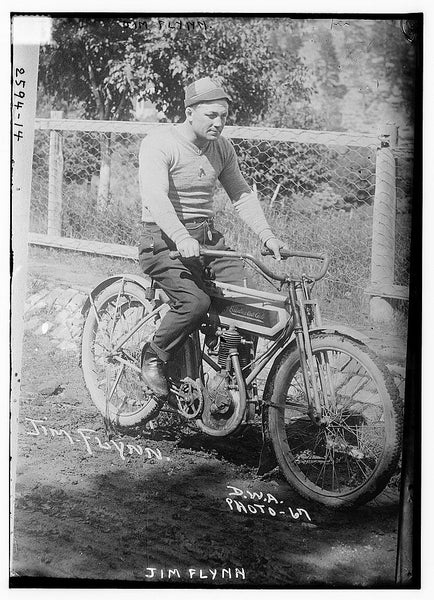
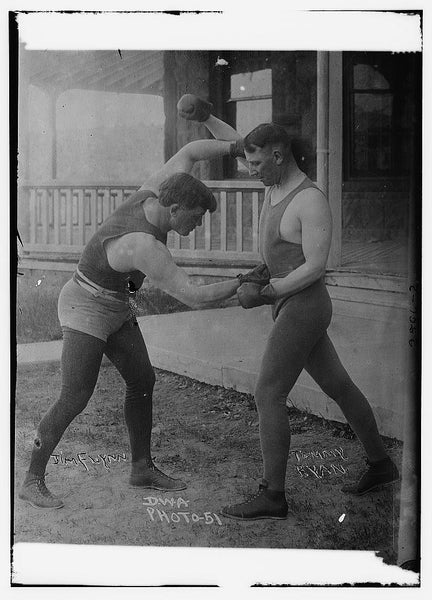


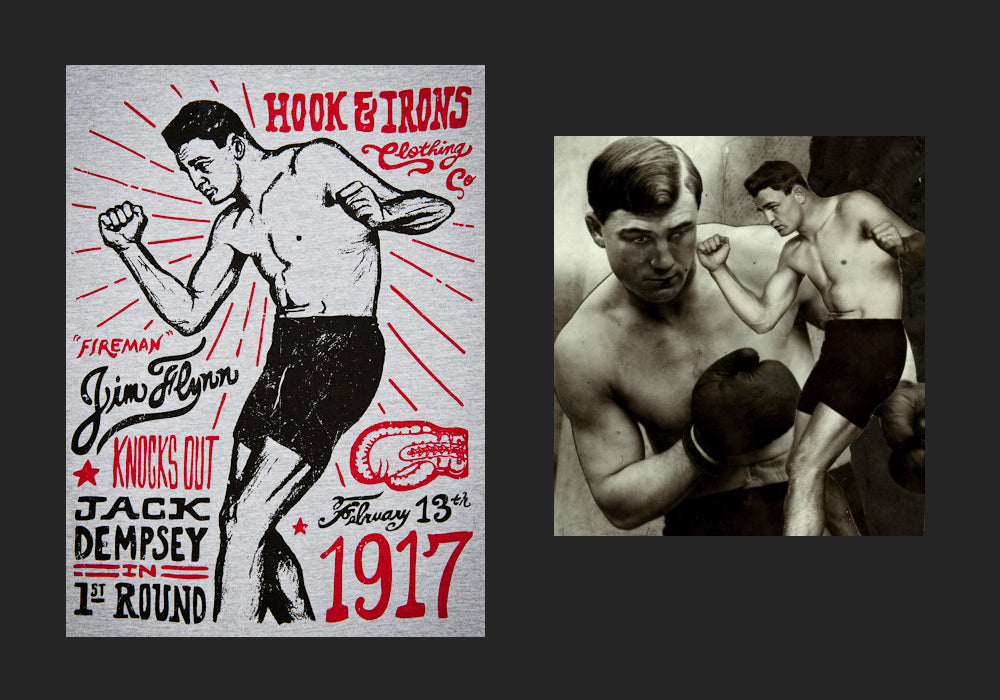
Inspiration
While researching ideas, the legendary knockout of Jack Dempsey, the Manassa Mauler combined with the workman-like boxing career of the underdog Jim Flynn inspired us to create a design honoring Flynn for Hook & Irons. Choosing the the designer was easy for this one. Steve Wolf specializes in hand-drawn art and works frequently with different sports topics. Additionally, he is a collector of vintage boxing artifacts and he seemed as excited, if not more, to bring this idea to life. As there is no poster for this event that we know of that still exists, we asked Steve to imagine a poster for the bout using the style of lettering and drawing that was popular at the time. We also asked him to draw his best rendition of Jim Flynn. The final design couldn't be more striking than the photo he worked from. We hope you enjoy the design and the small piece of history where the workman--the fireman--the boxer--the constant fighter--won one for the underdog.
The Bronx is Burning August 18 2013, 2 Comments
Close the Book October 11 2012, 10 Comments
This week, my department released a very short, simple memo. It stated that on Monday October 8, 2012 Miami-Dade Fire Rescue would no longer maintain a hand written logbook. Perfunctory and to the point, the e-mail was sent to every firefighter in our department.
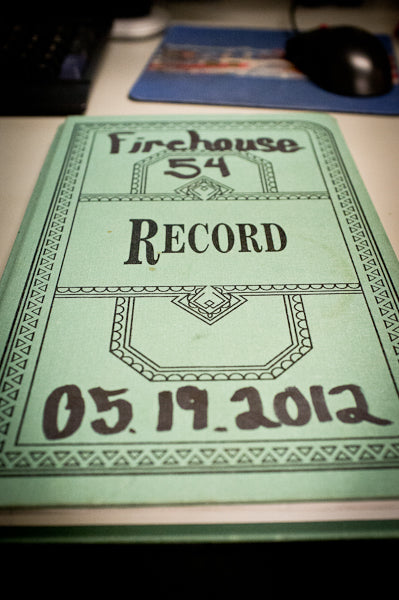
There wasn't a pause, a moment of silence, a last alarm, or even a mention of the tradition we killed in the name of efficiency. No one said a eulogy and no one rang a bell for the thousands of officers that had carefully documented everything that had happened on their watch at their station on any given day in Dade County. To think about the millions of calls our department has run in almost a hundred years is one thing. To see the volumes of logbooks that document every one of them is another.
Why was I so bothered by this change? Every other officer I talked to seemed thankful that this extra bit of work was being lifted from our shoulders. Don't get me wrong, at three o'clock in the morning there is no higher form of drudgery than sitting down and documenting some call that was anything but an emergency. Why, after five day, does this change still bother me? This was something that I had a hard time putting my head around. I'm certainly not a technology hater or a doomsday prepper. I have my iphone in my pocket. I'm on Facebook. I love having the TIC at my side going into a fire. And I'm sure the department has all of our documents secured on servers in fireproof rooms and virtual iclouds. Then it hit me.
Those logbooks--those documents written in so many different handwriting styles, are the only substantive evidence of the daily work we do. Those books are the only thing that you can pick up, feel, read, and see what that day--any day cost us. You can see it in the chicken scratch of tired officers or the careful letters of men who are not used to writing much more than their name. But most of all, you could walk in before your tour, run your finger down the column of calls and see if your brothers had a fire, a rough night, or if the gods were kind and let them sleep.
So this blog is not so much about blasting technology. It is more a warning to consider the things you leave behind in the name of efficiency.

What was lost today? Today I lost that moment in the morning when I sit with my coffee and write the names of each member of my company--that moment where I sit and consider their strengths and weaknesses and how I will use them in different situations. Sure I will still do this. I'll just have to find another way. And for me, writing these names was a reminder to myself, a contract that I am beholden to that states that I'm responsible for the safety of each firefighter at my station. If you don't believe me you can look for yourself and see it written in black and white on the page.
There isn't a blinking screen in the world that can provide that same feeling.
